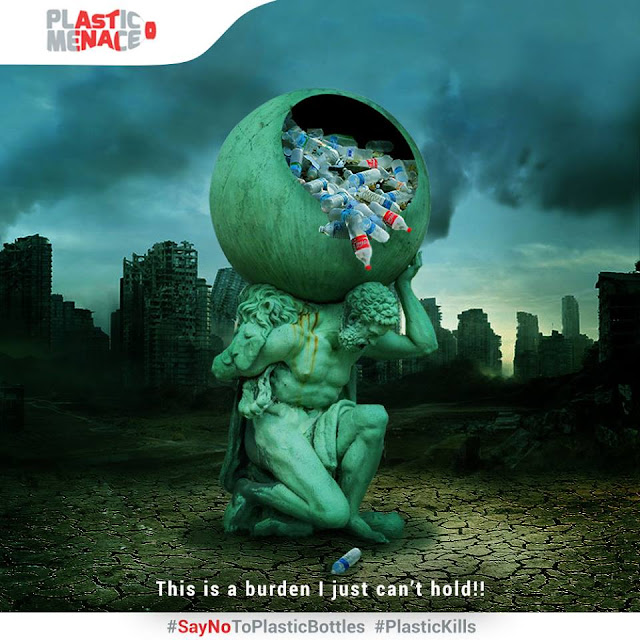Plastic Bottles are Harmful for Everyone
Every year, more than 50 billion plastic water bottles are sold worldwide. Of these, only 23% of the bottles are picked up for the recycling process. This means that more than 38 billion plastic bottles end up in landfills around the globe. This generates a huge amount of plastic waste. Plastic bottles are not bio-degradable. The plastic bottle environmental impact is immense. A single water bottle takes more than 1000 years to decompose naturally. It remains on this planet for hundreds of years and leaves a lasting impact on our plant and animal life, and water bodies.
Water bottle pollution is a serious environmental concern. Most of the water bottles used are not recycled properly. The discarded plastic bottles are washed away from the shore and end up in our rivers and oceans. Plastic bottle caps are not recyclable and often end up at the bottom of the ocean. Environmentalists say that very soon there will be more quantities of plastic in the oceans than fishes. The plastic bottles that end up in landfills remain there for years and years. Over time, these bottles seep dangerous chemicals into the ground which causes land and water pollution.
Oceans and rivers which are full of plastic waste are harmful to both man and marine life. As the plastic is broken down into smaller fragments, fishes and other marine animals mistake this plastic waste for their usual food and die of suffocation or intestinal occlusion. Water bottle pollution has far-reaching side effects for us in daily life. The fishes which are contaminated with plastic pollution, when we eat those, men are also affected by the harmful effects of plastic. The polluted water of our rivers and oceans also impacts our health in negative ways.
The most common type of plastic bottles manufactured is PET bottles, which require a huge amount of fossil fuels to produce. The production of plastic water bottles requires up to 17 million barrels of oil each year. This much quantity of oil is enough to fuel up to one million cars for an entire year. Additionally, it takes three times the volume of water to manufacture one bottle of water than it does to fill it. Because of the chemical process of manufacturing, the water cannot be used and is wasted. The plastic bottle environmental impact can be seen in the waste of these valuable resources of fossil fuel and water.
Drinking water from plastic bottles can result in many health problems. Plastic bottles are made Bisphenol A (BPA), which is linked to heart diseases, early puberty in girls, reduced fertility in women, neurological difficulties, and even certain types of cancer.
Some alternatives to using plastic bottles are:
Stainless Steel:
Stainless steel is very resistant to rust, chemicals and high temperatures which makes it a very stable material. Stainless steel bottles are BPA free and thus, a healthy option to store drinking liquids. They can be carried easily.
Glass:
A glass is a 100% recyclable material. Glass bottles are great for storing water at home. It can also be reused for other purposes. But glass is heavy and cannot be carried. 


Comments
Post a Comment